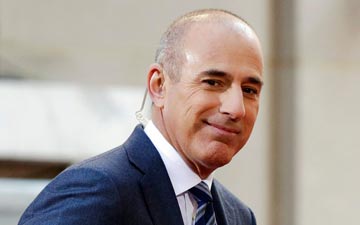
How company credo can promote healthy culture
This article was originally published in MarketWatch on December 1, 2017.
Ann Skeet is the director of Leadership Ethics at the Markkula Center for Applied Ethics at Santa Clara University. Views are her own.
Footage appearing on the “Today” show’s website the day co-host Matt Lauer’s termination was announced includes a 15-minute parody, “Today the Musical,” which clearly suggests that the Today staff does not take itself too seriously.
But Today’s self-parody also reveals an acceptance of crossing personal boundaries in the workplace in a number of areas, from removing clothes to referencing lactation. It’s a funny clip, and humor is often appreciated in many workplaces — perhaps especially in the entertainment business. One could even argue that in creating the spoof and the resulting connection to the news of Lauer’s transgressions that the network did indeed create, invent, and deliver its future — just like NBCUniversal’s credo promises.
That credo, which appears on the “Careers” page of the NBCUniversal website, states:
“We are in business to create and deliver content so compelling it entertains, informs and shapes our world. We believe that the talent, creativity and diversity of our people are our greatest resources. We emphasize teamwork because we are smarter, more dynamic and better together.
“We believe in doing the right thing and treating people the right way. We think integrity and honesty are the foundation of a productive working environment. We take our business seriously, but do not take ourselves too seriously.
“We are passionate about what we do and take pride in what we create. We have a pioneering spirit and are willing to take risks and embrace new technologies. We like to keep score and win.
As we grow our businesses together, we will not just anticipate the future, but rather create, invent and deliver it.”
If NBCUniversal’s credo is converted to questions, it can guide the organization to ethical behavior grounded in its beliefs and values. This is true for the mission, values, or credo of any organization to help it create a customized framework for ethical decision-making.
The credo for NBCUniversal would prompt these questions:
Will the action being considered:
1. Create and deliver compelling content that entertains, informs and shapes our world?
2. Treat our people as our greatest resource?
3. Emphasize teamwork?
4. Result in doing the right thing and treating people the right way?
5. Encourage integrity and honesty?
6. Promote passion and pride in what we create?
7. Encourage risk-taking and the embrace of new technologies?
8. Create, invent and deliver the future?
These might be questions NBCUniversal leadership used to guide its response to charges of sexual harassment against Lauer. It might explain their quick, decisive response.
But there are pieces of this credo that do not easily lend themselves to providing a question, let alone an answer, namely:
How does one measure or define taking business seriously, but not ourselves too seriously? Or keeping score and winning?
When such challenges arise, it can point to flaws in a credo or mission statement as a guide for making decisions consistent with the organization’s goals and values.
For example, does a culture that encourages keeping score and winning make it more acceptable for a male employee to ask colleagues if certain women should be “f***, married or killed”? — a game Lauer reportedly played.
Company leaders, board members, and employees alike should make it their responsibility to study the mission statement or, if one does not exist, the values statement or any published set of workplace purposes and norms, and turn the statements into questions.
Then, see how useful these questions are and whether or not they promote a healthy workplace culture. If you come upon an element of the statement that doesn’t work easily as a decision-making tool, or does not underscore appropriate behavior, take a closer look and consider updating the company’s purpose and self-image.
(AP Photo/Richard Drew, File)